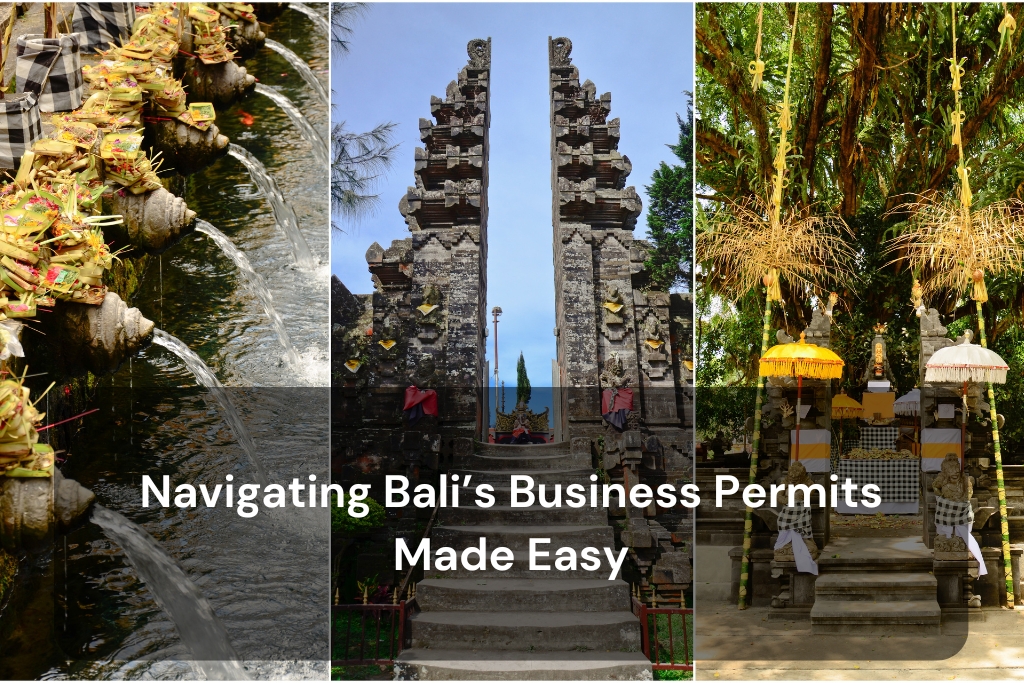Bali’s allure as a global tourist hotspot makes it an attractive location for entrepreneurs looking to start or expand their businesses. However, successfully establishing a business in Bali requires navigating a variety of licensing requirements. This article provides a step-by-step guide to simplify the process of obtaining key permits like the Business Identification Number (NIB), registering through the Online Single Submission (OSS) system, and understanding essential documentation for business operations.
Step 1: Understanding Key Business Permits
Before starting the licensing process, it is essential to understand the primary permits required:
- Business Identification Number (NIB): The NIB is a unique identification code issued to entrepreneurs through the OSS system. It serves as a universal license for legal business operations and is mandatory for any enterprise.
- Online Single Submission (OSS): The OSS is a centralized platform created by the Indonesian government to streamline business licensing processes. Entrepreneurs can use this system to register their business and manage permits without visiting multiple government offices.
- Operational Licenses: Additional licenses can be needed, depending on the industry. For example, hospitality businesses may need specific operational permits related to tourism, while restaurants require health and safety certifications.

Step 2: Preparing Essential Documentation
To ensure a smooth application process, gather the following documents:
- For Individual Businesses:
- National Identification Card (KTP)
- Tax Identification Number (NPWP)
- Personal bank account details
- For Corporate Entities:
- Articles of Association (Akta Pendirian)
- Approval letter from the Ministry of Law and Human Rights
- Corporate bank account details
- Board of Directors and Shareholders’ information
- Other Supporting Documents:
- Proof of business address (e.g., rental agreement or ownership certificate)
- Location permit from local authorities, if required
Step 3: Registering on the OSS Platform
- Create an Account: Visit the OSS website (oss.go.id) and register for an account using your personal or corporate details.
- Input Business Information: After logging in, fill in the required details about your business, including its name, type, and location. Ensure that the information matches the supporting documents to avoid delays.
- Submit Application for NIB: The system will prompt you to apply for an NIB. Once approved, you will receive the NIB digitally, which serves as your primary business license.
Step 4: Applying for Specific Permits
- Sector-Specific Licenses: You might require extra permits based on your industry. For example:
- Tourism: Submit applications for permits through the local tourism department.
- F&B (Food and Beverage): Obtain health and safety certifications.
- Construction: Apply for environmental and building permits.
- Location Permits and Zoning Approvals: Ensure that your business location adheres to local zoning regulations. This may require approval from local village authorities (desa) or city officials.
- Operational Permit: Some businesses need to obtain operational permits, such as halal certification or fire safety permits, to commence operations fully.
Step 5: Monitoring and Managing Licenses
Once your licenses are approved, it is essential to:
- Maintain both hard copy and digital copies of all permits.
- Monitor expiration dates and renew licenses through the OSS system.
- Update your business details in the OSS platform if there are any changes to your operations.
Tips for a Smooth Licensing Process
- Stay Updated on Regulations: Laws and requirements can change frequently. Regularly check the OSS website or consult local authorities for updates.
- Engage Professional Services: For complex cases, consider hiring professional consultants or legal advisors who are familiar with business licensing in Bali.
- Leverage Government Resources: Take advantage of training sessions or guidance provided by local PTSP (Integrated One-Stop Services) centers.
Benefits of Simplified Licensing
Simplifying the process of obtaining business permits has numerous advantages:
- Legal Security: Proper licensing ensures that your business operates legally, avoiding potential fines or legal issues.
- Access to Resources: Licensed businesses can access government incentives, funding opportunities, and partnerships.
- Improved Credibility: A legitimate business attracts more customers and fosters trust among stakeholders.
Conclusion
Obtaining business permits in Bali may initially seem daunting, but with proper preparation and the use of tools like the OSS platform, the process can become significantly more manageable. By following this guide, entrepreneurs can navigate licensing requirements efficiently, allowing them to focus on building and growing their businesses. Simplifying these processes not only benefits individual entrepreneurs but also fosters a thriving business environment, enhancing Bali’s economic landscape.





